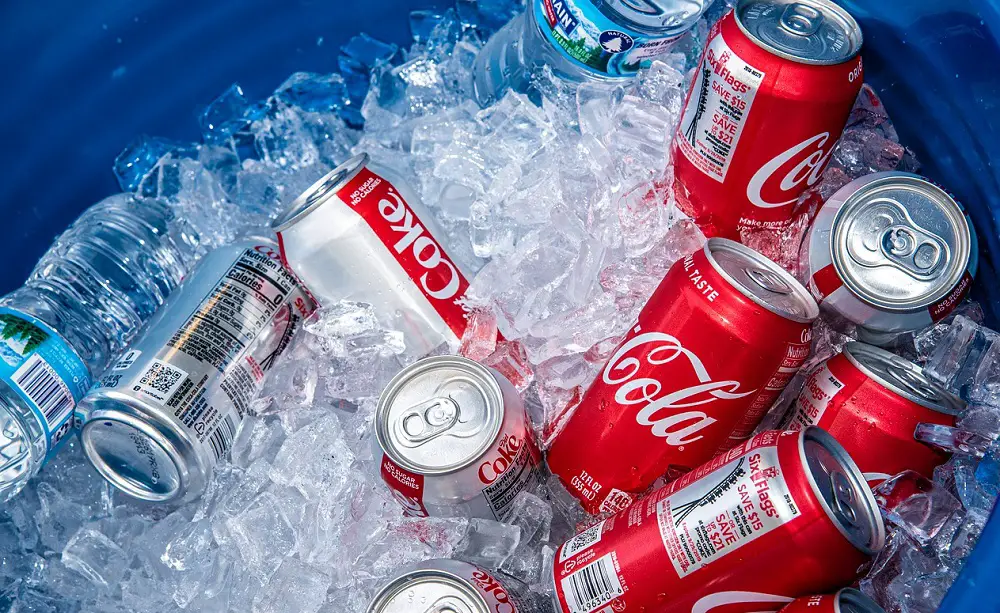
by Kabir Salisu | Apr 27, 2022 | Health & Wellness
The rambles of traditional medicine sellers through loudspeakers is the hallmark of northern Nigerian markets. We buy a myriad of regimens to strengthen our physical health, but the noun ‘mental health’ sounds unfamiliar to our intellects, even though many people suffer from mental health conditions in northern Nigeria.
To the average northerner, the mentally ill are those communally neglected people that are left to roam the streets with rags, eating insects, worms, and whatever is within their reach in the garbage and dumping sites.
Well, you will no longer look at mental health from this angle after reading this post.
Are We Mentally Healthy?
Mental Health simply means emotional well-being, the ability of a person to cope with the normal stresses of life. Look at its positive side, and do what is beneficial to his/her immediate community.
Research has shown that one out of four people suffers from one mental health condition in northern Nigeria. This means, if there are 8 people in your family, 2 are mentally ill, one might ask: why don’t we see them eating sand or greeting the clouds? It’s because mental illness is wider than what we imagine it to be.
My question goes: are you always able to manage normal stress, see positivity, and do what is beneficial to others? We all are/might be patients at some point in life I suppose.
Time to Change Our Mindset
An average northerner does not count mental disorders among the major causes of physical ailments and morbidity. Also, an average northerner does not believe that western medicine can cure/manage mental disorder patients; hence, we associate mental illnesses with entirely different causes. Take a look at the following instances;
Children with attention deficit disorders who struggle with understanding concepts in school, yet we call them dullards
People with schizophrenia hear, see, and react to hallucinations, they relate to subjects that aren’t real. For that, we blame sorcery, witchcraft, or jinn possession
We believe people with amnesia (memory loss) and dementia (continuous loss of cognitive function) are caused by magical attacks from rivals.
Those suffering from social phobia who find it hard to relate with others and prefer staying in solitude are tagged as arrogant and masu-ji-ji-dakai. If they try socializing, they end up with anger issues due to anxiety disorders and we say they are jarababbu.
Someone afflicted by depression is tagged mai-ƙunci. After enduring and they decide to opt for suicide, they get judged by the community as someone that has no trust in Allah’s plan (maras tawakkali)
Whilst all the above boldly mental health conditions in northern Nigeria and many more could be prevented by family support or managed by doctors, out of unawareness and negligence, we subject the patients to stigma and inhumane treatments.
How Do We Handle the Patients?
Most families regard it as an insult to have a mentally ill individual as their member; others imagine it to be a curse upon the lineage. For that, families and companions relate to the mentally ill in the following inhumanely ways;
Turning deaf ears to the stress, and not giving a damn about the emotional stability of fellows
Restriction of amnesia and dementia patients from meeting friends and guests in a bid to conceal their situation
Chaining schizophreniacs with shackles to restrict movement and ensure the privy of their status
Taking panic attacks and epilepsy (not purely psychiatric) patients to traditional or religious rehabilitation centers, where they get whippings and incantations. A pity!
Giving food leftovers to the mentally ill, abandoning them to sleep on the streets with some even raped in the process.
The Good News Is…
When talking about physical health, we all know that some diseases are curable while others are manageable but none is invincible. The same applies to mental health, by consulting your primary care physician. You can be referred to a mental health specialist for proper treatment of your own or your loved ones’ mental disturbances.
The common signs of mental disorders include:
- Extreme anger and frustration
- Difficulty sleeping, sleeping excessively or other sleeping disorders.
- Excessive fear of events or imaginary situations
- Excessive eating or depressed appetite
- Inattention, depressed mood, and fatigue
- Alternating episodes of fanaticism and depression
- Restlessness for not taking a drug or drink
- Hearing, seeing, believing, or reacting to things or events that are not real.
When you have any of the above signs or notice any of them with a friend or family member, you shouldn’t delay consulting doctors for the condition to be curbed before getting worse. Just like malaria, mental illnesses are trials one should not be ashamed of suffering, seek out proper care. Please.
In addition, you should keep an eye on this space for subsequent posts about mental health awareness and improvements.
Remember; healthy mind, healthy life!

by Kabir Salisu | Mar 30, 2022 | Health & Wellness
In Arewa and many other cultures, it’s believed that virginity depends on the first-night bleed. That’s why some couples use white bed sheets for the bloodstain to be seen.
If the woman didn’t bleed at the first intercourse in her matrimonial home, it is considered she had pre-marital sex. Hence the accusing fingers of infidelity, harlotry, and other baddies point at her no matter how sane she was formally considered.
All these are because most people don’t know much about the hymen.
What is Hymen?
The hymen is a piece of membrane that is situated about an inch and a half deep inside the vaginal canal. It separates the outer part from the inner part within the vaginal walls. One might ask if there’s a membrane then how does the menstrual blood flow out? Well, the hymen has a small opening(s) through which the blood passes.
Like any other part of the human body, the hymen does not look the same in every female. Some hymens are rich in blood vessels and nerves, others are not.
While most females have thick or thin hymens, some few others have no hymen at all, they were born with no hymen! Yes, it is normal and poses no health risks.
What Causes Premier Bleeding?
In females with hymens rich in blood supply, there occurs tear of the hymen at first penetration which causes the bleeding, with accompanied pain if the torn hymen is rich in nerves.
This bleeding is what makes the bride proud, the groom fulfilled and the families satisfied with the virginity and moral decency of the bride.
What if She didn’t Bleed?
Since we said that the bleeding is due to a tear of the hymen at first penetration, what of those that passed the first night with no blood drop?
Remember we said that some females have hymens not rich in blood supply, in these cases, there might be very little blood to be seen.
Also, nature blesses a fraction of females with thin hymen that could easily tear during exercise, cycling, horse riding, a simple act of running, or use of wrong sized tampons mostly with no bleeding or pain as the result of the poor blood vessels and nerves in the thin membrane. And if it bleeds and pains, it’s mostly mistaken for menstrual flow and cramps. It had gone! Unnoticed!
Moreover, about 1 in every 300 females was born without a hymen. Therefore, they experience no bleeding at first intercourse
Shikenan!
So, the above-mentioned categories plus the few unfortunate ones that faced the wrath of sexual violence, are all punished by our collective dogma of any bride that didn’t bleed on the first night is overly-experienced. Uncultured. Bad. Cursed.
What a pity!
Red Flag: Re-virgination
Since society defines any woman that bleeds on the first night as a virgin. No matter how bad her record was, the medical community came up with an option; hymenoplasty.
Hymenoplasty is the surgical reconstruction of broken hymen. The operation is been done by surgeons, heals early with hard-to-notice traces. It restores the hymen, therefore the lost ‘pride’.
After the procedure, the hymen appears intact again and bleeds as supposed at the next penetration. Period!
By now, I hope you understand that not all virgins have the hymens to break and bleed, and not all those that bleed were virgins.
Help me answer the question, does virginity depends on the first-night bleed? It’s high time we stop determining the virginity of women by an uncertain fragile tissue. Some lost it by accident, few were not given at all.
Stop the stigma, spread love!

by Kabir Salisu | Jan 21, 2021 | Health & Wellness
It is typical of the ajebutters among us to take soft drinks of various flavours as dessert after every meal. The averages take it once in a while, whilst the ‘fortunate’ lower-class tastes soft drinks once in a blue moon; credit to festivals and official meetings. Do you wonder why I tagged those that rarely take soft drinks as fortunate? Because soft drinks are bad for you!
Keep reading, e get why…
What Constitutes Soft Drinks?
Soft drinks are non-alcoholic carbonated drinks that taste sweet with distinctive sourness and a flavour of cola, orange, lemon, or whatever. Their colours portray the flavouring across different brand names. Shall we look at the features of a typical soft drink to know what we gulp down as refreshment?
The sweetness is a result of the added sugar during manufacturing. A 330ml can/bottle of soft drink contains about of sugar, which is more than the Recommended Daily Allowance (RDA) set by the American Heart Association.
Soft drinks taste sour because they contain an acid, mainly phosphoric acid. This acid disguises the high sugar content which otherwise will make the drink intolerable to taste. They are also pleasing owing to their caffeine content. This caffeine is what makes us feel relaxed and happy after taking soft drinks and leaves us craving for more.
What are Harmful Effects of Soft Drinks?
Yes, with the short-lived pleasure that comes with soft drinks, there are priceless elements of healthy life that it flies with. Down here are a few:
1. Obesity
You might be trying your best to lose weight, exercise, reducing carbs, slimming tea and all, but no result is achieved. Do you take soft drinks regularly?
The high sugar adds up belly fat leading to unhealthy weight gain. This weight builds up to obesity, which is a major risk factor for diabetes and hypertension.
2. High Risk of Diabetes
Whenever we take sugary foods, our bodies secrete a hormone called insulin. It facilitates the utilization of sugar by our bodies. When taken in excess, our body system develops resistance to this hormone hence the sugar can’t be properly utilized. This results in the accumulation of sugar, leading to metabolic syndrome and consequently type 2 diabetes.
They say there are sugar-free soft drinks in the market, hell no. Don’t you know they also contain potentially harmful sweeteners?
3. Risk of Hypertension and Heart Diseases
It’s well known that high sugar in the blood causes the deposit of fat on the belly right? Not only that, the belly is the part we talk about more because it’s more obvious, but the fat also builds up in the arteries and the heart causing high blood pressure and heart diseases.
Do you know that heart diseases, diabetes and hypertension are among the major causes of old age morbidity, stroke (resulting in paralysis), and premature death?
4. Tooth Decay
How do you feel after taking sourish thingy, like lemon? Do you feel that shock-like tangy sensation on your teeth? Well, the sourness of the acid in a soft drink does the same to your teeth (but counter-concealed by the sugar). The acidity erodes the enamel of teeth, which allows the action of microbes resulting in toothache and decay.
No wonder many elderly ajebutters have files in dental clinics.
5. Kidney Stones
There is phosphoric acid in soft drinks, right? That acid enables the right condition for the formation of kidney stones, a mass deposit that blocks the fine tubes through which urine passes during formation, this escalates to chronic disease.
6. Loss of Bone Mass
Soft drinks contain caffeine, which acts on kidneys to facilitate the passage of calcium alongside other important electrolytes. Calcium is an essential element in bone formation and density maintenance.
When calcium is lost through urine, there will be low calcium in the blood. The body tends to increase it by reducing the amount in your bones, guess what? Your bones pay for the price; they become brittle; easily breakable.
7. Addiction
In the last three years, how frequently do you take soft drinks? What of now? I am sure your consumption of the drink had, and is increasing with time. It makes you crave for more. The problem associated with the habitual intake of soft drinks is soda addiction.
At each episode of drinking, the caffeine in the drink acts on the brain and makes you feel okay, satisfied, and relaxed.
However, when the brain cells become familiar with this feeling, it craves for more and forces you to increase the amount of the drink you take daily. Whenever you decided not to take, there occur withdrawal symptoms typical to that of drug addicts. This is why some diabetic patients couldn’t resist the urge to take soda despite the life-threatening alarms all around.
Conclusion
Are you now convinced that soft drinks are bad for you? We aren’t saying you should cut soft drinks in your life, but habitual intake is dangerous.
Drink healthy, live healthy!
I hope you find this article resourceful. If you do, kindly leave a comment for me in the comments section. Thank you.



